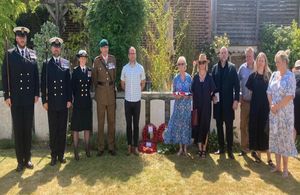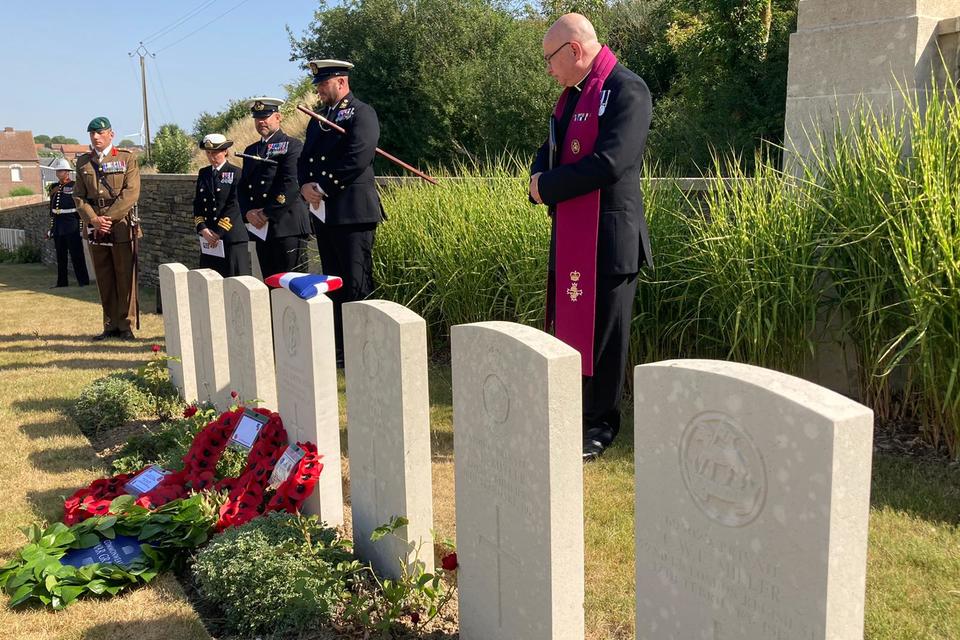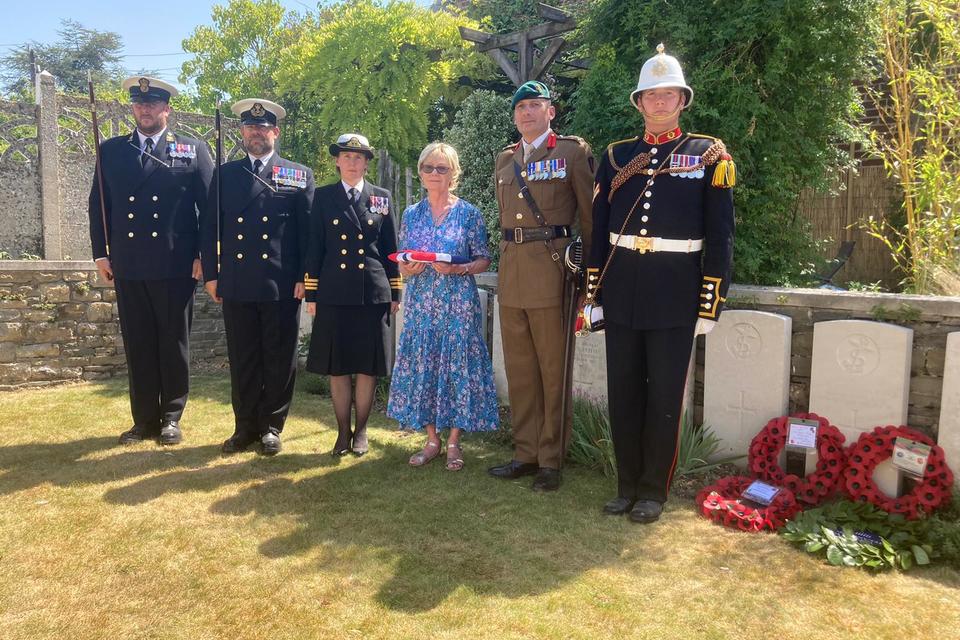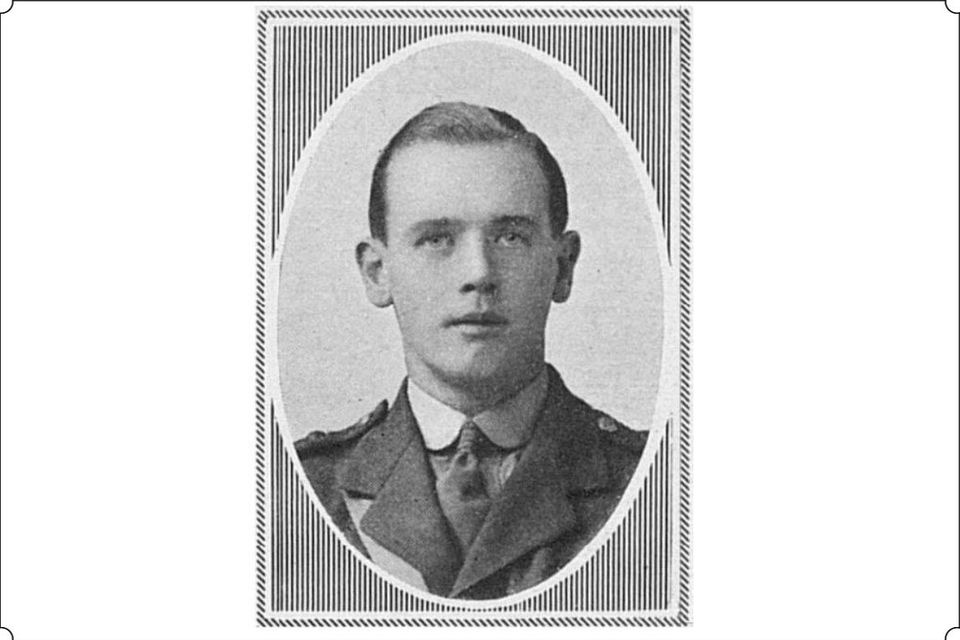Rededication services in France
The graves of two Royal Naval Division (RND) officers from the Great War rededicated in France

The family of Alfred Cookson and British armed forces personnel. Crown copyright.
The graves of Lieutenant (Lt) Alfred Owen Cookson, Hawke Battalion, RND who was killed on 8 October 1918 and Sub-Lieutenant (Sub-Lt) John Francis St. Clair Barton, Hood Battalion, RND who was killed on 13 March 1918, have been rededicated at the Commonwealth War Graves Commission’s (CWGC) Proville British Cemetery (ADS) Cemetery, France and (CWGC) Ribecourt British Cemetery, France, respectively. Several members of the family attended the service for Lt Cookson which was organised by the MOD’s Joint Casualty and Compassionate Centre (JCCC), also known as the ‘MOD War Detectives’.

The Reverend David Conroy leads the rededication service. Crown copyright.
Both ceremonies were conducted by the Very Reverend David Conroy, Deputy Chaplain of the Fleet and supported by members of the Royal Navy.

A member of Alfred Cookson's family with British military representatives. Crown copyright.
Nicola Nash JCCC said:
These two brave young men served throughout the Great War fighting in almost all the major battles on the Western Front. It is tragic that they both lost their lives so close to the Armistance. It is a privilege to be here today to see their names on their headstones and pay our respects to them.
How they died
The Hawke Battalion was at the forefront of the advance to victory in the last 100 days of the war, when the Allied counter-offensive finally broke through the Hindenburg Line and drove the Germans back. Lt Cookson was recorded in the Battalion’s war diary as having died from his wounds during at attack on the village of Niergnies, on the outskirts of Cambrai.
Lt Cookson was 24 years old when he was killed.
The Hood Battalion war diary notes that on 10 March 1918 they relieved the Hawke Battalion in the front-line system in the centre of Ribecourt. They were heavily bombarded with gas shells over the next few days, which saw several men being injured and evacuated. On 13 March 1918 the war diary records that Sub-Lt Barton was killed on patrol having just turned 22.
The Very Reverend David Conroy said:
We will remember them’ is the phrase widely heard at our November ceremonies. Today, on behalf on the nation, it was a real honour to enact that promise.
Area Director for France at the Commonwealth War Graves Commission, Xavier Puppinck, said:
It is our privilege to honour Lt Cookson and Sub-Lt Barton with new headstones at our cemeteries in France today. These two brave young men died fighting for their country in the final year of the First World War. We will care for their graves in perpetuity.
Background:
Alfred Owen Cookson was born on 10 February 1894 in Wakefield, West Yorkshire. Alfred had one sister, whose relatives were at the service today.
At the outbreak of World War One, Alfred was working as a mining student, presumably with his father who was a colliery manager. When the war began, Alfred joined the Motor Patrol Service. The following year he was transferred to the Royal Naval Division and joined the Hawke Battalion on 25 October 1915 as a ‘Bombing Officer’. He went on to serve in the Darndanelles and in France, being twice wounded in action.
Unfortunately there are no photos of Alfred Cookson.
John Francis St. Clair Barton was born on 1 October 1895 in Beckenham, Kent to Francis Alexander Barton (1861-1939) and Clara Elsie Pierce (1867-1961).

John Francis St Clair Barton. Copyright unknown.
John’s father was a surgeon and airship pioneer who was known for co-piloting the first British public airmail flight. John had one brother and one sister. When World War Onebegan, John originally joined the Honourable Artillery Company before gaining a commission in June 1917. He was later posted to the Hood Battalion in November 1917 and tragically lost his life on 13 March 1918.